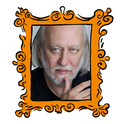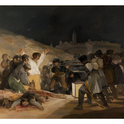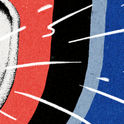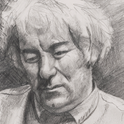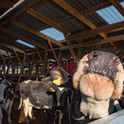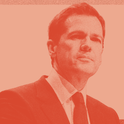
“Simon Schama may be the finest living practitioner in English of haute vulgarization,” says Robert Alter (£) in his review in the new issue of Prospect: “The great strength of The Story of the Jews is Schama’s flair for bringing to life the historical experience of Jews in these different times and places. His style is breezy and often colloquial. Occasionally, he works too hard to achieve the effect of liveliness… Such moments of excess, however, are no more than the defects of a virtue."
Jennifer Szalaireviews Thomas Pynchon’s latest novel (£), Bleeding Edge, and asks whether his signature style—a madcap jumble of characters and conspiracies—still holds up, decades after the publication of his celebrated early novels:
“I suppose it’s the unflagging amazement [of Pynchon’s fans] that amazes me, as if every scrap of Pynchoniana were startling and profound. At the same time, the experience of reading a Pynchon novel, what it actually feels like, is something that even his most ardent fans are hard pressed to describe. So I will say that Bleeding Edge elicited in me feelings of curiosity, amusement, boredom and exhaustion.”
Samuel Moyn reviews Year Zero: A History of 1945 (£), Ian Buruma’s account of the aftermath of World War Two. While Buruma masterfully reconstructs the atmosphere of the age, he sidesteps the ideological and political debates that were a key part of the postwar moment, says Moyn:
“A historical method emphasising the perfect quotation and a writing style that unfailingly finds le mot juste does not take the reader beyond the play of individual perceptions of a moment in time. As indispensable as these elements are, history is as much about institutions as individuals, and the job of writing history is also abut seeing what people on the ground fail to see.”
James Woodallcelebrates Paul Klee’s (£) blend of realism and surrealism ahead of a new show at the Tate Modern:
“Despite his love of the human imagination, Klee accepted that the ‘real world’ was inescapably an artist’s starting-point. House fronts, sea creatures, ships’ sails, shell forms, fir trees, children’s toys, birds, plants, hills and roads: all are detectable in Klee, adapted and distorted.”
Plus, Books in Brief:
DJ Taylor on A Classless Society: Britain in the 1990s by Alwyn Turner
Elaine Showalter on The Goldfinch by Donna Tartt
David Wolf on Truth by John D Caputo
Jonathan Derbyshire on Serving the Reich: The Struggle for the Soul of Physics Under Hitler by Philip Ball

